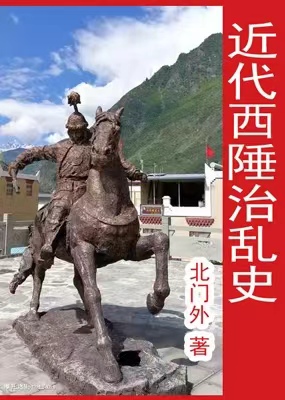7 William Street, Fitzroy Square.
Dear Phil,
Can I see you for a minute or two as soon as possible. I am in awful trouble and don”t know what to do. It”s not money.
Yours truly, Mildred.
He tore the letter into little bits and going out into the street scattered2 them in the darkness.
“I”ll see her damned,” he muttered.
A feeling of disgust surged up in him at the thought of seeing her again. He did not care if she was in distress4, it served her right whatever it was, he thought of her with hatred5, and the love he had had for her aroused his loathing6. His recollections filled him with nausea7, and as he walked across the Thames he drew himself aside in an instinctive8 withdrawal9 from his thought of her. He went to bed, but he could not sleep; he wondered what was the matter with her, and he could not get out of his head the fear that she was ill and hungry; she would not have written to him unless she were desperate. He was angry with himself for his weakness, but he knew that he would have no peace unless he saw her. Next morning he wrote a letter-card and posted it on his way to the shop. He made it as stiff as he could and said merely that he was sorry she was in difficulties and would come to the address she had given at seven o”clock that evening.
It was that of a shabby lodging-house in a sordid10 street; and when, sick at the thought of seeing her, he asked whether she was in, a wild hope seized him that she had left. It looked the sort of place people moved in and out of frequently. He had not thought of looking at the postmark on her letter and did not know how many days it had lain in the rack. The woman who answered the bell did not reply to his inquiry11, but silently preceded him along the passage and knocked on a door at the back.
“Mrs. Miller12, a gentleman to see you,” she called.
The door was slightly opened, and Mildred looked out suspiciously.
“Oh, it”s you,” she said. “Come in.”
He walked in and she closed the door. It was a very small bed-room, untidy as was every place she lived in; there was a pair of shoes on the floor, lying apart from one another and uncleaned; a hat was on the chest of drawers, with false curls beside it; and there was a blouse on the table. Philip looked for somewhere to put his hat. The hooks behind the door were laden13 with skirts, and he noticed that they were muddy at the hem3.
“Sit down, won”t you?” she said. Then she gave a little awkward laugh. “I suppose you were surprised to hear from me again.”
“You”re awfully14 hoarse15,” he answered. “Have you got a sore throat?”
“Yes, I have had for some time.”
He did not say anything. He waited for her to explain why she wanted to see him. The look of the room told him clearly enough that she had gone back to the life from which he had taken her. He wondered what had happened to the baby; there was a photograph of it on the chimney-piece, but no sign in the room that a child was ever there. Mildred was holding her handkerchief. She made it into a little ball, and passed it from hand to hand. He saw that she was very nervous. She was staring at the fire, and he could look at her without meeting her eyes. She was much thinner than when she had left him; and the skin, yellow and dryish, was drawn16 more tightly over her cheekbones. She had dyed her hair and it was now flaxen: it altered her a good deal, and made her look more vulgar.
“I was relieved to get your letter, I can tell you,” she said at last. “I thought p”raps you weren”t at the “ospital any more.”
Philip did not speak.
“I suppose you”re qualified17 by now, aren”t you?”
“No.”
“How”s that?”
“I”m no longer at the hospital. I had to give it up eighteen months ago.”
“You are changeable. You don”t seem as if you could stick to anything.”
Philip was silent for another moment, and when he went on it was with coldness.
“I lost the little money I had in an unlucky speculation18 and I couldn”t afford to go on with the medical. I had to earn my living as best I could.”
“What are you doing then?”
“I”m in a shop.”
“Oh!”
She gave him a quick glance and turned her eyes away at once. He thought that she reddened. She dabbed19 her palms nervously20 with the handkerchief.
“You”ve not forgotten all your doctoring, have you?” She jerked the words out quite oddly.
“Because that”s why I wanted to see you.” Her voice sank to a hoarse whisper. “I don”t know what”s the matter with me.”
“Why don”t you go to a hospital?”
“I don”t like to do that, and have all the stoodents staring at me, and I”m afraid they”d want to keep me.”
“What are you complaining of?” asked Philip coldly, with the stereotyped22 phrase used in the out-patients” room.
“Well, I”ve come out in a rash, and I can”t get rid of it.”
Philip felt a twinge of horror in his heart. Sweat broke out on his forehead.
“Let me look at your throat?”
He took her over to the window and made such examination as he could. Suddenly he caught sight of her eyes. There was deadly fear in them. It was horrible to see. She was terrified. She wanted him to reassure23 her; she looked at him pleadingly, not daring to ask for words of comfort but with all her nerves astrung to receive them: he had none to offer her.
“I”m afraid you”re very ill indeed,” he said.
“What d”you think it is?”
When he told her she grew deathly pale, and her lips even turned, yellow. she began to cry, hopelessly, quietly at first and then with choking sobs24.
“I”m awfully sorry,” he said at last. “But I had to tell you.”
“I may just as well kill myself and have done with it.”
He took no notice of the threat.
“Have you got any money?” he asked.
“Six or seven pounds.”
“You must give up this life, you know. Don”t you think you could find some work to do? I”m afraid I can”t help you much. I only get twelve bob a week.”
“What is there I can do now?” she cried impatiently.
“Damn it all, you MUST try to get something.”
He spoke25 to her very gravely, telling her of her own danger and the danger to which she exposed others, and she listened sullenly26. He tried to console her. At last he brought her to a sulky acquiescence27 in which she promised to do all he advised. He wrote a prescription28, which he said he would leave at the nearest chemist”s, and he impressed upon her the necessity of taking her medicine with the utmost regularity29. Getting up to go, he held out his hand.
“Don”t be downhearted, you”ll soon get over your throat.”
But as he went her face became suddenly distorted, and she caught hold of his coat.
“Oh, don”t leave me,” she cried hoarsely30. “I”m so afraid, don”t leave me alone yet. Phil, please. There”s no one else I can go to, you”re the only friend I”ve ever had.”
He felt the terror of her soul, and it was strangely like that terror he had seen in his uncle”s eyes when he feared that he might die. Philip looked down. Twice that woman had come into his life and made him wretched; she had no claim upon him; and yet, he knew not why, deep in his heart was a strange aching; it was that which, when he received her letter, had left him no peace till he obeyed her summons.
“I suppose I shall never really quite get over it,” he said to himself.
What perplexed31 him was that he felt a curious physical distaste, which made it uncomfortable for him to be near her.
“What do you want me to do?” he asked.
“Let”s go out and dine together. I”ll pay.”
He hesitated. He felt that she was creeping back again into his life when he thought she was gone out of it for ever. She watched him with sickening anxiety.
“Oh, I know I”ve treated you shocking, but don”t leave me alone now. You”ve had your revenge. If you leave me by myself now I don”t know what I shall do.”
“All right, I don”t mind,” he said, “but we shall have to do it on the cheap, I haven”t got money to throw away these days.”
She sat down and put her shoes on, then changed her skirt and put on a hat; and they walked out together till they found a restaurant in the Tottenham Court Road. Philip had got out of the habit of eating at those hours, and Mildred”s throat was so sore that she could not swallow. They had a little cold ham and Philip drank a glass of beer. They sat opposite one another, as they had so often sat before; he wondered if she remembered; they had nothing to say to one another and would have sat in silence if Philip had not forced himself to talk. In the bright light of the restaurant, with its vulgar looking-glasses that reflected in an endless series, she looked old and haggard. Philip was anxious to know about the child, but he had not the courage to ask. At last she said:
“You know baby died last summer.”
“Oh!” he said.
“You might say you”re sorry.”
“I”m not,” he answered, “I”m very glad.”
She glanced at him and, understanding what he meant, looked away
“You were rare stuck on it at one time, weren”t you? I always thought it funny like how you could see so much in another man”s child.”
When they had finished eating they called at the chemist”s for the medicine Philip had ordered, and going back to the shabby room he made her take a dose. Then they sat together till it was time for Philip to go back to Harrington Street. He was hideously32 bored.
Philip went to see her every day. She took the medicine he had prescribed and followed his directions, and soon the results were so apparent that she gained the greatest confidence in Philip”s skill. As she grew better she grew less despondent33. She talked more freely.
“As soon as I can get a job I shall be all right,” she said. “I”ve had my lesson now and I mean to profit by it. No more racketing about for yours truly.”
Each time he saw her, Philip asked whether she had found work. She told him not to worry, she would find something to do as soon as she wanted it; she had several strings34 to her bow; it was all the better not to do anything for a week or two. He could not deny this, but at the end of that time he became more insistent35. She laughed at him, she was much more cheerful now, and said he was a fussy36 old thing. She told him long stories of the manageresses she interviewed, for her idea was to get work at some eating-house; what they said and what she answered. Nothing definite was fixed37, but she was sure to settle something at the beginning of the following week: there was no use hurrying, and it would be a mistake to take something unsuitable.
“It”s absurd to talk like that,” he said impatiently. “You must take anything you can get. I can”t help you, and your money won”t last for ever.”
“Oh, well, I”ve not come to the end of it yet and chance it.”
He looked at her sharply. It was three weeks since his first visit, and she had then less than seven pounds. Suspicion seized him. He remembered some of the things she had said. He put two and two together. He wondered whether she had made any attempt to find work. Perhaps she had been lying to him all the time. It was very strange that her money should have lasted so long.
“What is your rent here?”
“Oh, the landlady”s very nice, different from what some of them are; she”s quite willing to wait till it”s convenient for me to pay.”
He was silent. What he suspected was so horrible that he hesitated. It was no use to ask her, she would deny everything; if he wanted to know he must find out for himself. He was in the habit of leaving her every evening at eight, and when the clock struck he got up; but instead of going back to Harrington Street he stationed himself at the corner of Fitzroy Square so that he could see anyone who came along William Street. It seemed to him that he waited an interminable time, and he was on the point of going away, thinking his surmise38 had been mistaken, when the door of No. 7 opened and Mildred came out. He fell back into the darkness and watched her walk towards him. She had on the hat with a quantity of feathers on it which he had seen in her room, and she wore a dress he recognized, too showy for the street and unsuitable to the time of year. He followed her slowly till she came into the Tottenham Court Road, where she slackened her pace; at the corner of Oxford39 Street she stopped, looked round, and crossed over to a music-hall. He went up to her and touched her on the arm. He saw that she had rouged40 her cheeks and painted her lips.
“Where are you going, Mildred?”
She started at the sound of his voice and reddened as she always did when she was caught in a lie; then the flash of anger which he knew so well came into her eyes as she instinctively41 sought to defend herself by abuse. But she did not say the words which were on the tip of her tongue.
“Oh, I was only going to see the show. It gives me the hump sitting every night by myself.”
He did not pretend to believe her.
“You mustn”t. Good heavens, I”ve told you fifty times how dangerous it is. You must stop this sort of thing at once.”
“Oh, hold your jaw,” she cried roughly. “How d”you suppose I”m going to live?”
He took hold of her arm and without thinking what he was doing tried to drag her away.
“For God”s sake come along. Let me take you home. You don”t know what you”re doing. It”s criminal.”
“What do I care? Let them take their chance. Men haven”t been so good to me that I need bother my head about them.”
She pushed him away and walking up to the box-office put down her money. Philip had threepence in his pocket. He could not follow. He turned away and walked slowly down Oxford Street.
“I can”t do anything more,” he said to himself.
That was the end. He did not see her again.
第一百零九章
秋尽冬来。菲利普曾将自己目前的住址留给伯父的管家福斯特太太,好让她写信跟自己联系。不过,他现在还是每星期去医院一次,看看有没有信。一天黄昏,他看到自己的名字赫然出现在一只信封上,而那字体笔迹正是他永远不愿再看到的。他心头不由得产生一股不可名状的感觉。有一阵子他真不想伸手去拿信。它勾起了一连串令人憎恶的回忆。可是后来,他终究沉不住气,还是把信撕了开来。
亲爱的菲尔:
是否可以尽快和您见一面。我的境遇很不妙,不知怎么办才好。不是钱的事儿。
您的忠实的
米尔德丽德
于菲茨罗伊广场
威廉街七号
他将信撕得粉碎,走到街上,随手把碎片撒向茫茫的暮曛之中。
"巴不得她见鬼去哩,"他嘟哝了一句。
他想到要同她再次见面,心头禁不住涌起一阵厌恶之感。她是不是真的在受苦,他才不在乎呢。不管她落到何等地步,都是罪有应得!想到她,他又恼又恨,过去的一片痴情,现在变成了满腔的厌恶。回首往事,他心烦意乱,直打恶心。他漫步走过泰晤士河时,由于竭力避免再想到她,甚至本能地把身子缩到了一边去。他上了床,可是没法人睡。他暗自纳闷,不知她究竟出了什么事。她不到走投无路的地步是不会给他写信的。担心她生病、挨饿的念头,怎么也没法从脑子里驱散掉。他恼恨自己意志薄弱,但是他知道,如果不亲眼见她一面,自己怎么也安不下心来。第二天一早,他在一张明信片上匆匆涂了几笔,随后在去店里上班的途中投寄了出去。信里尽量写得冷冰冰的,只说得知她境况窘迫,颇觉黯然,说他将于当晚七时按所写的地址前去探访。
那是一幢肮脏破败的出租公寓,坐落在一条污秽的街道上。菲利普想到要同她见面,心里头就很不是个滋味。他在向人打听她是否住在这儿的时候,忽然异想天开地巴望她已经搬离了。这儿看上去正是那种人们经常搬进迁出的住所。昨天他没想到看一下她信封上的邮戳,不知道那封信在信架上已搁了多久。应铃声出来开门的那个妇人,并没有开腔回答他的询问,只是默不作声地带他穿过通道,在屋子深处的一扇门上敲了几下。
"米勒太太,有位先生来看你,"她朝屋内招呼了一声。
房门开了一线,米尔德丽德心环猜疑地打缝隙里朝外瞟了一眼。
"噢,是你呀,"她说,"进来吧。"
他走了进去,她随手把门带上。这是一间狭小的卧室,那乱糟糟的样子,和她住过的每一间寓所没有什么两样。地板上有一双鞋,东一只,西一只,上面的尘土也没擦拭干净。帽子丢在五斗橱上,旁边还有几绺假卷发,外套就撂在桌子上。菲利普想找个放帽子的地方,门背后的衣帽钩上挂满了裙子,他看到裙边上还沾有泥污哩。
"坐下好吗?"她说着,尴尬地笑了一声。"我想,这回你又收到我的信,你觉得有些意外,是吗?"
"你嗓子哑得很哪,"他回答说,"喉咙痛吗?"
"是的,痛了好一阵子了。"
菲利普没有吱声,在等待着她解释为什么要跟他见面。卧室里狼藉的景象足以表明她又堕入先前的那种生活里去了,而他一度把她从那种生活里硬拖了出来。他不知道那小孩究竟怎么样了,壁炉架上倒有一张那孩子的照片,但房问里看不到一丝痕迹能说明孩子和她住在一起。米尔德丽德手里捏着手帕,把它揉成个小球,两手传来传去。他看出她内心十分紧张。她目不转睛地凝视着炉火,他对以从容打量她而不会遇上她的目光。她比离开他的时候消瘦得多了,脸上的皮肤焦黄而干枯,更加紧绷绷地贴在颧骨上。头发染过了,成了亚麻色,这使得她模样大变,越发俗不可耐了。
"说实在的,一接到你的回信,我的心就定下来了,"她终于开腔了,"我怕你说不定已经离开医院了。"
菲利普没有吱声。
"我想你已经正式取得医生资格了,是吗?"
"没有。"
"怎么会呢?"
"我已经不在医院了。一年半以前,我不得不改行,另谋生汁。"
"你就是好见异思迁,似乎干什么事都干不长。"
菲利普又沉默了半晌。接着,他冷冷地说:
"我做了笔投机买卖,但不走运,把手头仅有的一点本钱赔了个精光。再没钱继续学医了。我只得尽量想办法挣钱糊口。"
"那么你现在干哪个行当呢?"
"我在一家商店里做事。"
"喔!"
她飞快地瞥了他一眼,随即又将目光移开去。他发现她脸红了。她神经质地用手帕轻轻拍打着自己的手掌。
"你总不至于把你的医道全忘了吧?"她好不容易把这句话从喉咙眼里挤了出来,腔调古里古怪的。
"还没有全忘掉。"
"我想见你,就是为了这个。"她的声音降低成沙哑的耳语。"我不知道自己害了什么病。"
"为啥不上医院去看呢?"
"我才不愿去呢,让那些学生哥儿们全冲着我直瞪眼,弄得不好,他们还要留我在那儿呢。"
"你觉得哪儿不舒服?"菲利普冷冷地问道,用的是门诊室询问病人的那套行话。
"嗯,我身上出了一片疹子,怎么也好不了。"
菲利普感到一阵说不出的厌恶猛然袭上心头,额头上沁出了汗珠。
"让我瞧瞧你的喉咙。"
他把她带到窗口前,尽自己的可能替她作了一次检查。陡然间,他看清了她那双眼睛,那对眸子里充满着极端的恐惧,叫人看了毛骨悚然。她真被吓环了。她要他来宽慰自己;她用哀求的眼光望着他,又不敢启口央求他讲几句宽慰的话语,但她全身的神经绷得紧紧的,巴不得能听到这样的话儿呢。然而,让她宽心的话儿,他一句也没有。
"恐怕你病得还不轻哩,"他说。
"你看是什么病?"
他对她实说了,她一下子面如死灰,甚至连嘴唇也变得焦黄。她绝望地流下泪来,起初是无声的痛哭,后来渐渐泣不成声了。
"实在对不起,"他沉默了良久,终于这么说了,"但是,我不得不以实言相告。"
"真还不如去寻死,两眼一闭也就一了百了了。"
对于这一威胁,他未予理会。
"你手头有钱吗?"他问道。
"有六七镑的样子。"
"要知道你不能再这样生活下去了。你不觉得自己可以找点活儿干干吗?我恐怕帮不了你的大忙,我一星期也只拿十二个先令。"
"我现在还能干些什么呢?"她不耐烦地大声嚷嚷。
"真是活见鬼,你总得想法子干点什么呀。"
他神情严肃地跟她说话,把她自己有什么样的危险,以及她对别人又会引起什么样的危险,一五一十地向她说了,而她则郁郁不乐地谛听着。他试图安慰她几句,讲到最后,尽管她一肚子的不高兴,他总算还是让她勉强同意按他的劝告行事。他开了一张药方,说要把它拿到最近的药房去配。他还再三叮嘱她,一定要按时服药。他站起身来,伸出手,准备告辞。
"别垂头丧气啦,你的喉咙要不了多久就会好的。"
但他刚动身要走,她的脸孔倏地扭曲了,她上前一把拉住他的大衣。
"哦,别离开我;"她声音嘶哑地嚷道。"我真害怕呀。别把我丢下不管啊,菲尔,求求你!我再没有别人可找了,你是我曾有过的唯一的朋友!"
他觉得出她的灵魂沉浸在恐怖之中。说也奇怪,这种惊恐之状和他在他伯父眼睛里看到的很相似,那时他伯父生怕自己将不久于人世。菲利普垂下了头。这个女人两次闯进他的生活,搞得他狼狈不堪;她没有资格对他提什么要求。然而,他却感到内心深处蕴藏着一种异样的隐痛,究竟为什么,他也闹不清楚;而正是这种隐痛,使得他在接到她的信后心绪不宁,直到他服从了她的召唤为止。
"我看啊,这种隐痛一辈子也别想排除得掉,"他自言自语地说。
他一挨近她,就会感到浑身不舒服,这种莫名其妙的嫌恶使得他茫然不知所措。
"你要我怎么办呢?"他问道。
"咱俩一块儿到外面去吃点东西。我请客。"
他犹豫不决。他觉得她又在慢慢地潜回到自己的生活中来,而他原以为,她已永远地从他的生活中消失了。她盯住他望,那副迫不及待的神情不免令人作呕。
"喔,我知道我一向待你很不好,但是现在,可别把我扔下不管呀。你也算解了心头之恨了、要是你现在撤下我孤零零一个人,我简直不知道怎么办才好。"
"好吧,反正我也无所谓,"他说,"不过咱们得省着点儿,眼下我可没有钱来乱花。"
她坐下来,穿上鞋,随即又换了条裙子,戴上帽子,两人一同走了出去,在托顿汉法院路上找到了一家餐馆。菲利普已经不习惯在晚上这个时候吃东西,而米尔德丽德的喉咙痛得厉害,连食物也咽不下。他们吃了一点儿冷火腿,菲利普喝了一杯啤酒。他们相对而坐,以前他们就是这么坐着的。他怀疑这种情景她是否还会记得。他俩之间也实在无话可说,要不是菲利普硬逼着自己开口,就会一直这么一声不吭地呆坐下去。餐馆里灯火通明,好多面俗里俗气的镜子互相映照着,映像翻来复去,重叠不尽。在这一片华灯之下,她显得既苍老又憔悴。菲利普急于想打听那小孩的情况,但是没有勇气启口。最后还是她自己提起来的:
"告诉你吧,孩子去年夏天死啦。"
"啊!"他说。
"也许你会感到难过吧?"
"才不呢,"他回答道,"我高兴得很咧。"
她瞟了他一眼,理解到他这话的含义,随即把目光移了开去。
"你一度挺疼这个孩子的,对不?我那时总觉得奇怪,你怎么会那么疼爱另一个男人生的小孩。"
他们吃完了就来到药房取药,菲利普刚才曾把药方留在那儿,让他们先配好。回到那间凌乱破旧的卧室以后,他叫她吞眼了一剂。他俩又闲坐了一会,一直到菲利普得回哈林顿街时才起身告辞。这一番折腾实在使他厌烦透了。
菲利普每天都去看她。她服用他开的药,照他的嘱咐行事。不多久,疗效果然十分显著,这一来,她对菲利普的医术信服得五体投地。随着病情的逐步好转,她人也不再那么承头丧气了。说起话来也随便多了。
"只要我一找到工作,一切就全上正轨了,"她说。"我摔交也摔够了,现在想学点乖了,省得你再为我忙得团团转了。"
菲利普每次遇见她,总要问她有没有找到工作。她要他别担心,只要拿定主意了,准会找到点事情干干的。她有好几手准备,趁这一两个星期养精蓄锐岂不更好。对此,他也不便说她不是,但是随着这一期限的临近,他也越来越固执己见。现在她心情可开朗多了,她嘲笑他,说他是个专爱无事空扰的小老头。她把自己去找那些老板娘面谈的经过唠唠叨叨地说给他听,因为她打算在一家餐馆里弄一份差事。她还告诉他老板娘们讲了些什么,她又回答了些什么。眼下吗,什么还都没有敲定,但是她相信到下星期初肯定会有眉目的,没有必要仓促行事嘛,拣错了行当可追悔莫及啊。
"这种说法太荒唐了,"他不耐烦地说,"现在你不管找到什么差事都得干,我可帮不了你的忙,况且你也没有用不完的钱哪。"
"啊,不过我也还没有到山穷水尽的地步,还可以碰碰运气呐。"
他目光严厉地打量着她。他们初次见面以来已三个星期,那时候她手头的钱还不足七英镑。他顿时起了疑心。他回想起她说过的一些话,仔细玩味推敲。他怀疑她是否真去寻找过工作。说不定她一直在欺骗他哩。她手头的钱居然能维持这许多日子,真是天大的怪事。
"你这儿的房租要多少?"
"嘿,房东太太为人和气,跟其他的房东可不一样,她从来不上门来催缴房租,我什么时候手头方便,就什么时候付。"
他沉默不语。他怀疑的事如若属实,那真是太可怕了。这不禁使得他踌躇起来。盘问她也是白搭,她什么也不会承认的,要想知道真情,就只得亲自去查明。他已习惯在每晚八时同她分手,时钟一敲,他便起身告辞;但是这回他并没有直接回哈林顿街去,而是站在菲茨罗伊广场的拐角里,这样不管谁沿着威廉街走来,都逃不过他的眼睛。他似乎觉得已等了好长时间了,心想也许是自己猜测错了。他正打算离开,就在这时,只见七号的门开了,米尔德丽德走了出来。他闪身躲回到暗处,注视着她迎面走来。她戴的帽子上还插着一簇装饰羽毛,他曾在她房间里看到过,她穿的那身衣服他也认得,在这条街上显得过分惹眼,而且也不合时令。他尾随她缓步前行,来到托顿没法院路,她放慢了脚步,在牛津街的拐角处站定身子,四下望了一眼,随即穿过马路,来到一家音乐厅门首。他急忙跨前几步,碰了碰她的胳膊。他看到她面颊抹着胭脂,嘴唇上涂着一层口红。
"你上哪儿去,米尔德丽德?"
听到他的声音她不由得吃了一惊,像她平时被人戳穿谎言时那样,脸刷地绯红。接着,她眼睛里射出一道他所熟识的愠怒的目光,她本能地企图借破口大骂来防身自己,然而话到嘴边,又咽了下去。
"哟,我不过是想来看看演出罢了。每天晚上老是一个人孤零零地坐着,把人都要闷死啦。"
他不再装作相信她的话了。
"你不能这么干的。天哪,我对你讲了不下五十次了,这有多危险!你得赶紧悬崖勒马才是。"
"得了,别来这一套!"她粗暴地嚷道,"你以为我能靠喝西北风过日子吗?"
他一把抓住她的手臂,下意识地想把她拖走。
"看在上帝的份上,来吧。让我送你回家去。你不知道自己在干些什么哟!这是犯罪!"
"关我什么事呢?让他们来碰运气吧!男人们一直这样对待我,难道我还得为他们操心吗?"
说罢,她一把推开菲利普,径自走到售票处跟前,付了钱就进去了。菲利普口袋里只有三个便士,无法跟她进去。他回转身子,沿着牛津街缓步向前走去。
"我再也无能为力了,"他喃喃地说。
事情就这样了结了。从此,他再也没有见着米尔德丽德。







